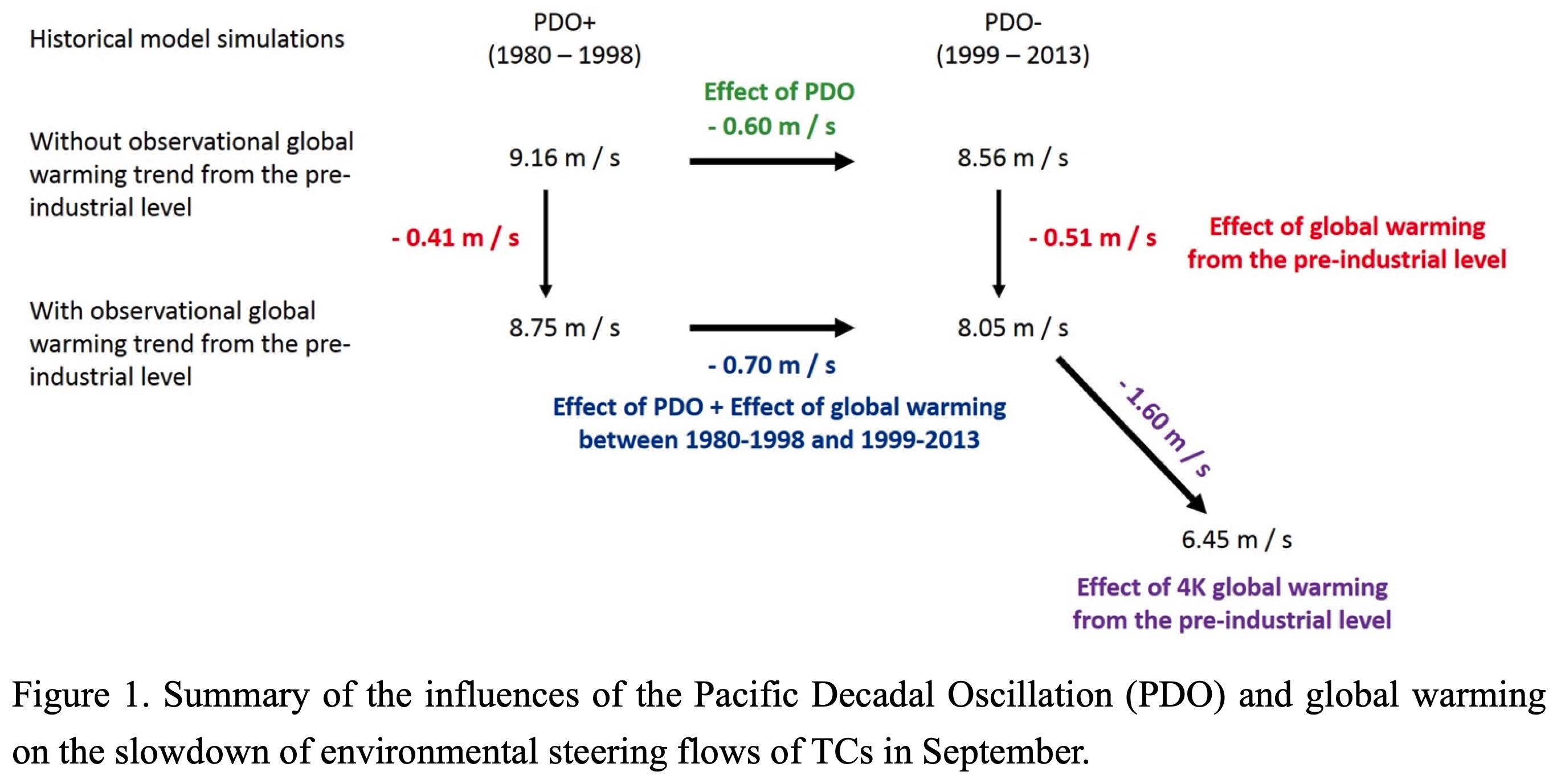Graphical Abstract
Yamaguchi, M., and S. Maeda, 2020: Slowdown of Typhoon Translation Speeds in Mid-latitudes in September Influenced by the Pacific Decadal Oscillation and Global Warming. J. Meteor. Soc. Japan, 98, 1321–1334.
https://doi.org/10.2151/jmsj.2020-068
Early Online Release
Graphical Abstract
Plain Language Summary: This study investigated whether the translation speed of tropical cyclones (TCs) has slowed in the western North Pacific basin during a post-geostationary satellite era from 1980-2019. Analyses of observational data and atmospheric reanalysis products revealed that the TC translation speed has significantly diminished over Japan, the East China Sea and their surrounding areas in September over the last 40 years. Historical model simulations with and without observational global warming trends reveal two main factors responsible for the translation speed slowdown: the Pacific Decadal Oscillation and global warming. Model simulations for a future warmer climate show that global warming further reduces the steering flows, leading to more slowly-moving TCs in autumn in the future.
Highlights:
- Both the natural climate decadal variabilities and global warming can make the TC translation speed slower, but the effects are not uniform in time and space (This is an important message to disaster preparedness communities).
- More caution is needed when the slowdown caused by the Pacific Decadal Oscillation is combined with the slowdown caused by global warming to increase the risk of extreme weather events.
- TWith the synergistic effects of increase in the rain rate associated with TCs and decrease in TC translation speeds, the accumulated precipitation at a given location will significantly increase in autumn in the future.







